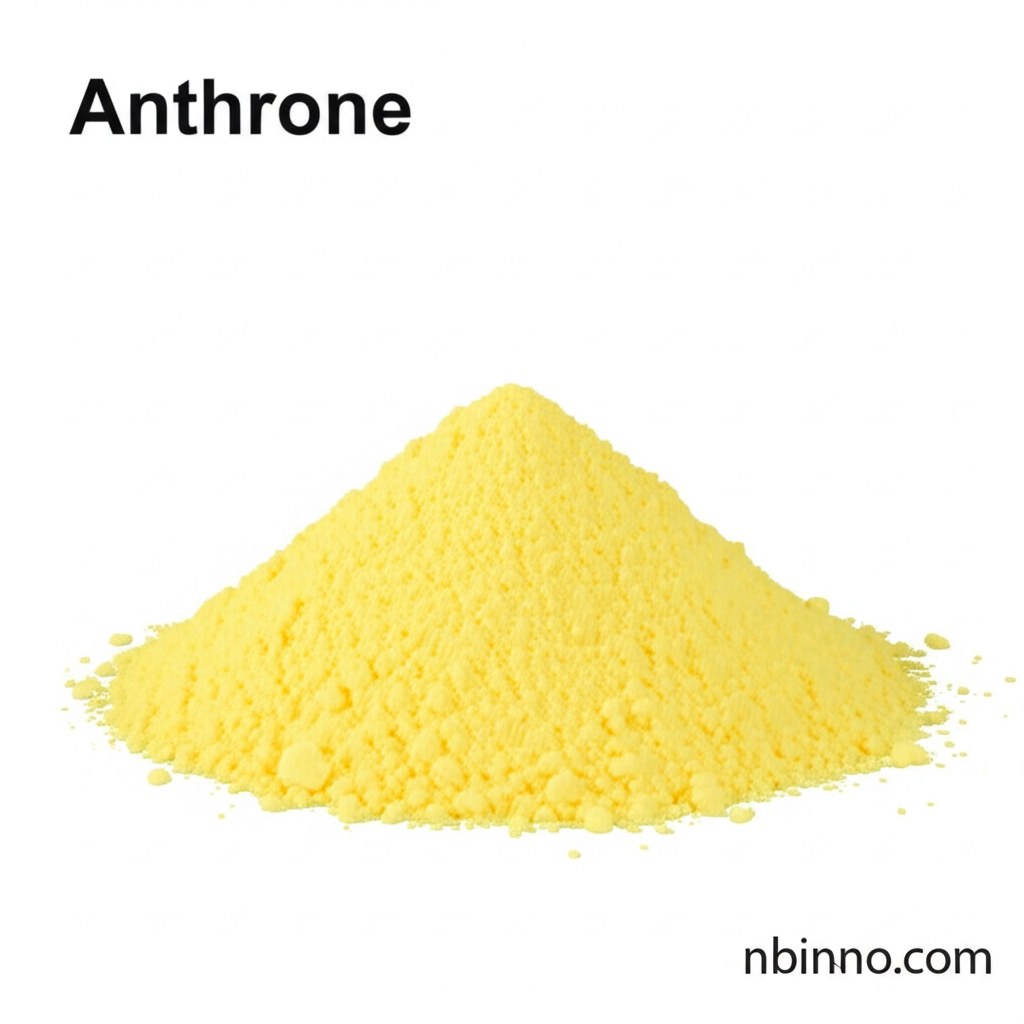Anthrone CAS 90-44-8: A Versatile Organic Synthesis Intermediate and Its Applications
Explore the critical role of Anthrone in modern organic synthesis and material science.
Get a Quote & SampleProduct Core Value

Anthrone
Anthrone (CAS 90-44-8) is a fundamental organic compound valued for its extensive utility as an intermediate in diverse organic synthesis pathways. Its consistent quality and specific chemical properties make it indispensable for creating a range of advanced materials and fine chemicals.
- Discover the primary uses of anthrone as an organic synthesis intermediate, facilitating complex chemical transformations.
- Learn about the production of pigments, dyes, and fluorescent whitening agents leveraging anthrone's unique chemical structure.
- Understand the application of anthrone in key industrial sectors, including textile manufacturing, soap production, and paper making.
- Explore the role of anthrone as a reagent and catalyst, enhancing the efficiency of various organic chemistry reactions.
Benefits of Using Anthrone
Versatile Chemical Intermediate
As a key organic synthesis intermediate, Anthrone enables the creation of a wide array of complex molecules crucial for advanced applications.
Enabling Material Production
Its use in manufacturing pigments, dyes, and fluorescent whitening agents showcases Anthrone's vital role in the chemical industry supply chain.
Broad Industrial Applicability
From textiles to paper, Anthrone finds application across multiple industries, highlighting its broad utility and market relevance.
Key Applications
Organic Synthesis
Anthrone serves as a critical building block in many organic chemistry reactions, supporting the synthesis of specialized compounds.
Dye and Pigment Manufacturing
It's integral to the production of various dyes and pigments, impacting sectors from textiles to printing.
Advanced Materials
Anthrone is utilized in the development of materials for organic electronics, such as OLEDs and organic semiconductors.
Industrial Processes
Its application in textile, paper, and soap manufacturing demonstrates its widespread industrial importance.
